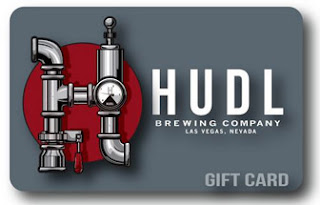TTAB Dismisses HUDL Opposition to HUDL BREWING COMPANY: Proof of Dilution Fame Fails and Goods/Services Too Different for Section 2(d)
In a 96-page opinion, the Board gave the boot to this Section 2(d) and 43(c) consolidated opposition to registration of HUDL BREWING COMPANY for beverage glassware, clothing, and beer (BREWING COMPANY disclaimed). Opposer Agile Sports Technologies claimed likelihood of confusion with, and likelihood of dilution (by blurring) of, its registered HUDL and HUDL-formative marks for various sports-related software and video goods and services. The Board found Agile's evidence insufficient to prove fame for dilution purposes, and concluded that the involved goods are too different to support a conclusion of likely confusion. This post will attempt to hit the high points. Agile Sports Technologies, Inc. v. Hudl Brewing Company LLC, Oppositions Nos. 91247770, 91248316, and 91248342 (August 20, 2021) [not precedential] (Opinion by Judge Christopher Larkin).
Opposer's Common Law Rights: The Board refused to consider evidence regarding Agile's use of the HUDL mark for clothing and beverageware because Agile did not plead common law rights in its notice of opposition. The applicant objected to this evidence, and Agile did not raise the issue of trial by implied consent.
Dilution Fame: Opposer Agile's software products "are built around digital video playback and provide sports teams with an online mobile platform for video sharing, editing, and review." Agile's HUDL products are nearly universally used by coaches and players at all levels, from professional to high school.
The Board observed that dilution fame is difficult to prove. "An opposer must show that, when the general public encounters the mark 'in almost any context, it associates the term, at least initially, with the mark’s owner," TiVo Brands, 129 USPQ2d at 1103 (quoting Coach Servs., 101 USPQ2d at 1725), and that the mark has "become a ‘household term [with] which almost everyone is familiar.'" Neither Agile's advertising and promotion under its HUDL mark, nor the amount, volume, and geographic extent of its sales, supported a finding of "ubiquitous and sustained exposure of the mark to the general public." Agile's evidence of media coverage was "not the sort of media coverage that supports a finding that a mark is a 'household term.'"
The Board concluded that "[b]ecause Agile cannot satisfy the threshold requirement of fame under Section 43(c), it cannot prevail on its likelihood of dilution claim in each opposition."Likelihood of Confusion: Agile’s marketing numbers were "nowhere near as large as those that have supported fame findings under Section 2(d) in multiple Federal Circuit and Board cases." The Board found the HUDL standard character mark to be "quite strong" in the high school sports sub-market, but of average strength in other sub-markets. Its strength has not been diminished by third-party uses of HUDL- and HUDDLE-formative marks.
The Board found HUDL and HUDL BREWING COMPANY to be "more similar than dissimilar in all means of comparison."
As to the applicant's beverage ware (class 21), the four third-party registrations submitted by Agile, without any evidence regarding use, were insufficient to show relatedness with Agile's services. Similarly with regard to clothing (class 25), eight third-party registrations without proof of use, did not show relatedness with Agile's services. As to beer (class 32), Agile submitted two third-party registrations and argued that "beer and sports (particularly sports as entertainment) are uniquely intertwined." Not good enough, said the Board.
As to channels of trade, Agile failed to show that its software or service overlap with the normal channels of trade for applicant's goods.
The Board concluded that Opposer Agile failed to prove by a preponderance of the evidence that confusion is likely, and so it dismissed Agile's Section 2(d) claim.
Although the marks are similar, Opposer’s HUDL mark is quite strong in the high school sub-market for the goods and services for which it is registered, and Applicant’s goods may be subject to impulse purchase by some consumers, we give greater weight in our analysis to the stark dissimilarity of the goods and services identified in Opposer’s registration and the goods identified in Applicant’s applications, and the lack of any evidence that the respective goods and services are sold in overlapping channels of trade to overlapping consumers. We conclude that the goods and services are simply too far afield for confusion to be likely.
Read comments and post your comment here.
TTABlogger comment: What do you think will happen next?
Text Copyright John L. Welch 2021.



1 Comments:
Either the opposer is getting sub-par advice from counsel, or they are not listening to the advice of counsel. Probably the latter.
Post a Comment
<< Home